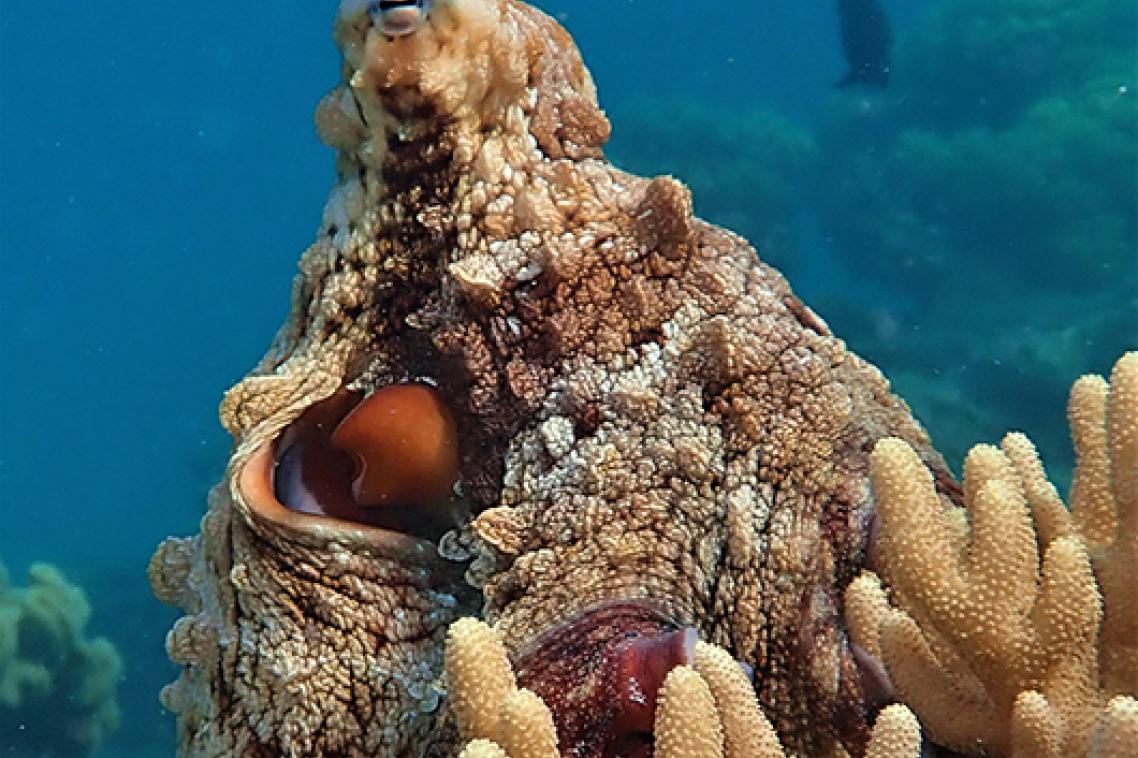How smart is an octopus?

The unique brainpower of octopuses – known for their intelligence and Houdini-like escapes – has been revealed by University of Queensland researchers.
Dr Wen-Sung Chung from UQ’s Queensland Brain Institute is part of a team that studied four octopus species using MRI techniques to produce detailed 3D images for comparing their unique brain structures.
He said octopus brains varied, depending on where a species lived, when it was active and if it interacted with other animals.
“The octopus is a master of camouflage, capable of solving complex tasks and their cognitive ability is said to approach that of some small mammals,” Dr Chung said.
“We investigated four species, including one deep-sea octopus, one solitary nocturnal species and two different reef dwellers active during daylight.”
The reef octopuses had a significantly larger brain with some properties similar to primates, adapted for complex visual tasks and social interaction in a busy, well-lit environment.
“These octopuses have some remarkably complex behaviours not known in other octopuses,” Dr Chung said.
“For example, collaborative hunting with reef fish has been recorded, where the octopus usually leads and coral trout join by either actively seeking prey or opportunistically snatching small organisms flushed out by the octopus.
“The ability to receive and respond to gestures between different species as part of collaborative hunting demonstrates that octopus species have complex cognitive abilities.”
The differences in brain structures between species relates to the size of the brain’s surface area, with a larger surface area indicating a more complex nervous system and increased cognitive ability.
Professor Justin Marshall heads the team that was first to discover the differences in brain structure, opening the door to a better understanding of the complexity and evolution of these apparently “smart” animals.
He said the team’s ongoing research aimed to provide insights into how octopus brain structure is linked to behaviour, vision and advanced cognition.
The research has been published in Current Biology (https://doi.org/10.1016/j.cub.2021.10.070).
Images and video available here.
Media: Dr Wen-Sung Chung, w.chung1@uq.edu.au, +61 409 551 126 or Erik de Wit, QBI Communications, e.dewit@uq.edu.au, +61 447 305 979.
Related articles

Why mamba snake bites worsen after antivenom

Index unlocks a market for nature recovery work
Media contact
UQ Communications
communications@uq.edu.au
+61 429 056 139
